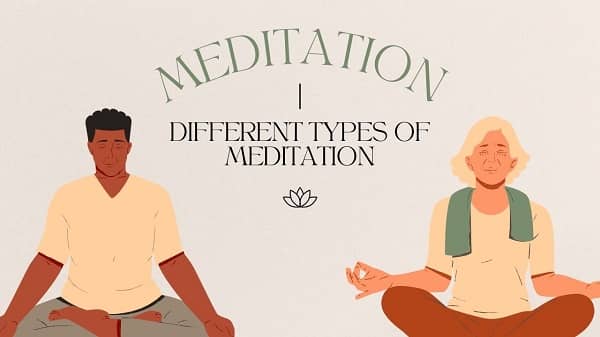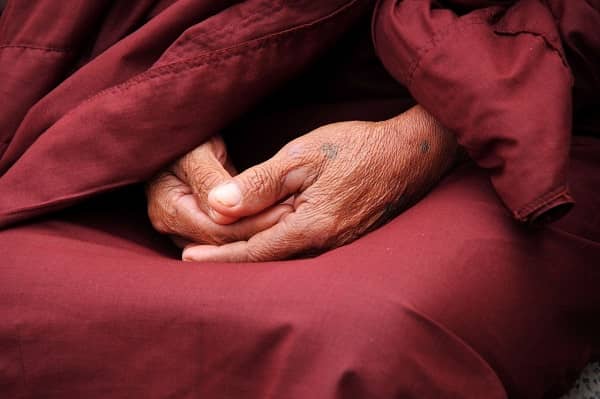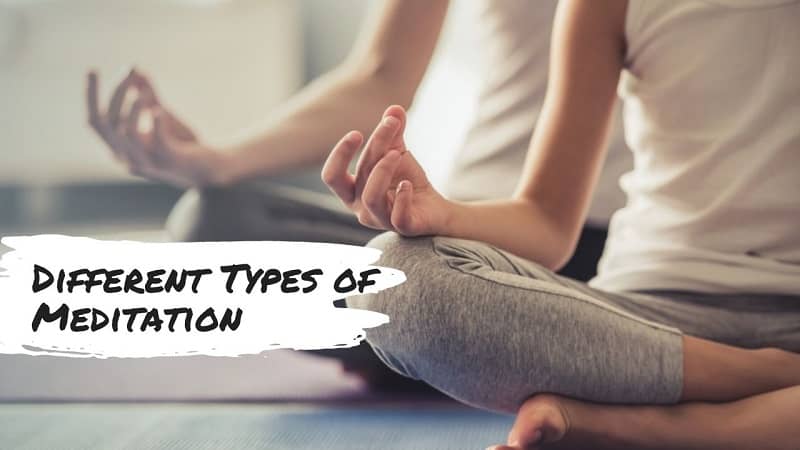What are the types of meditation and the benefits you can get from practicing them? Continue to know…
Today, the majority of us experience an unrelenting daily stream of stress. This could be disastrous for bodily and emotional health, including cardiovascular and blood pressure systems.
Therefore, there is an urgent need for a sanctuary of calm and tranquillity to deal with high-stress levels.
More and more people are turning to meditation to find that refuge in life. In fact, there is scientific evidence to support the healing and calming effects of meditation.
Therefore, today let’s discuss the different types of meditation and benefits and explore the topic.
Whether you’re having a thundering headache or a red alert on the stress meter, we hope you’ll find relief through meditation.
Types of Meditation and their Benefits

In general terms, stress comes and goes in little bursts throughout life. What’s better than shooing it away with some meditation?
Let’s get the answer “does meditation work scientifically or not”?
However, with so many types of mediation and benefits, it’s not an easy task to choose which one is the best.
Have a glance over different types of meditation so that you can decide on a suitable one for yourself:
#1. Mindfulness Meditation
Being fully aware of the moment is the practice of mindfulness meditation. In short, being mindful entails being conscious of our surroundings and our actions.
Along with that, it includes refraining from overreacting to them.
Among all the types of meditation practices, it is the easiest one. After all, it is possible to meditate mindfully anywhere.
Benefits of mindfulness meditation:
- Improves concentration
- Makes you conscious of your thoughts
- Improves decision making
When engaging in mindfulness meditation, you pay attention to your thoughts and feelings yet let them go unperturbed.
#2. Vipassana Meditation

Vipassana meditation seeks to transform the individual via introspection.
You can create a strong connection between your mind and body by concentrating on the physical sensations in your body.
Teachers of the practice claim that this interconnectedness fosters love and compassion while assisting with mental balance. Among all the types of meditation for anxiety, vipassana works the best.
Basically, people practice Vipassana to get benefits:
- Quiets your mind
- Improves focus
- Helps with resentment
- Helps you control worry
Many of the concepts behind what we currently refer to as mindfulness have their roots in conventional vipassana approaches.
#3. Visualization Meditation
During a visualization meditation, you focus solely on picturing something or someone in your mind.
Although it can seem difficult, focusing on the breath or body is basically the same.
By staying concentrated and giving them vitality, frequent visualization can assist you in achieving your goals in life.
Potential advantages of visualization meditation:
- Greater clarity about desires
- Stronger tolerance for discomfort
- Improved focus
- Better goal-following
Moreover, people visualize different things such as being on a beach or inside the sea. In simple terms whatever helps you focus and get calm works.
#4. Chakra Meditation
The goal of chakra meditation is to bring harmony and well-being to the chakras through the use of relaxation techniques.
One of these methods is to visualize each chakra in the body together with its corresponding color.
To aid with concentration when meditating, some people may choose to utilize colored crystals that correspond to each chakra.
Here are the benefits of chakra meditation:
- Assists in Self-healing
- Relaxes the mind
- Improves awareness of body
To begin with, learn about the characteristics and qualities of each chakra. Bring to light the chakras that require opening or rebalancing.
Concentrate on each part of the body and visualize the energy passing through it.
#5. Body Scan Meditation
Essentially, Body scan yoga is popularly known as Progressive relaxation. The objective of a body scan is to become aware of the tension and allow it to release.
In progressive relaxation, you start at one end of the body, usually the feet, and work the way up. The technique is to tense muscles at first and then, relax them.
Further, people picture a wave of breeze, energy, or something calming passing through them. This helps in focusing and concentrating which is the final aim of every meditation.
Major benefits of Body scan meditation:
- Aids in chronic pain
- Relaxes the body and mind
Developing generalized sensations of serenity and relaxation might be aided by progressive relaxation.
#6. Yoga Meditation

Yoga has been practiced since prehistoric times in India. In yoga meditation, individuals practice a series of postures and controlled breathing exercises.
Practitioners focus less on outside distractions and stay more present because the poses call for balance and concentration.
Yoga meditation helps the practitioners with:
- Improving flexibility
- Better cardiovascular system
- Increases stamina
If you are new to yoga, talk to a trainer about which types of meditation in yoga are suitable for you.
#7. Love Kindness Meditation
Loving-kindness Metta meditation is another name for meditation. Basically, its goal is to promote a mindset of kindness and love.
It helps in facilitating such feelings for everyone and everything, even one’s adversaries and stressors.
Generally, individuals take deep breaths and open their minds to receive kind thoughts. They practice being kind to the individuals around them by imagination or repeating a phrase.
The secret to most variations of this meditation is to repeat the mantra repeatedly until the practitioner experiences an attitude of loving-kindness.
People practice Metta meditation for these benefits:
- Reduced depression
- Decreased anxiety
- Assist with post-traumatic stress or PTSD
The goal of loving-kindness meditation is to cultivate feelings of empathy and love, both for oneself and for others.
#8. Mantra Meditation

Simple yet effective mantras can help you change the way you think so that it is more beneficial and productive.
A syllable or word that meditators repeat is known as a mantra. Meditation using mantras gives similar benefits of transcendental meditation.
In mantra meditation, you concentrate on a syllable, word, or phrase rather than the breath.
Each syllable of a mantra has a particular meaning beneficial to certain types of people. It is crucial to obtain your mantra from a licensed teacher who is skilled in matching you with the appropriate mantra.
Mantra Meditation is beneficial, as it:
- Strengthens your heart
- Improves vocals
- Helps in controlling thoughts
Overall, it is advised you meditate every day to get the most out of the form of meditation.
Since little meditation is better than none, do add this to your routine. Aiming for 3 days a week is a wonderful method to establish the habit without feeling stressed. Start small, then progress.
Moreover, it could seem natural to some people to practice meditation twice a day.
Message to Take Home
Lastly, there isn’t a meditation technique that works for everyone. Here we’ve discussed different types of meditation and their benefits to manage stress.
These 8 different ways to meditate offer distinctive experiences, modifications, and advantages.
All are ideal for individuals with various personalities, life objectives, and spiritual perspectives.
Hopefully, after looking at different types of meditation and their benefits, you’ll be able to choose a suitable one for you.
So, what are you waiting for? Go and try a few of these if you want to enjoy the benefits of meditation. Also, do let us know which type of meditation worked out for you.
Also Read: Benefits of Yoga for Stress Management

